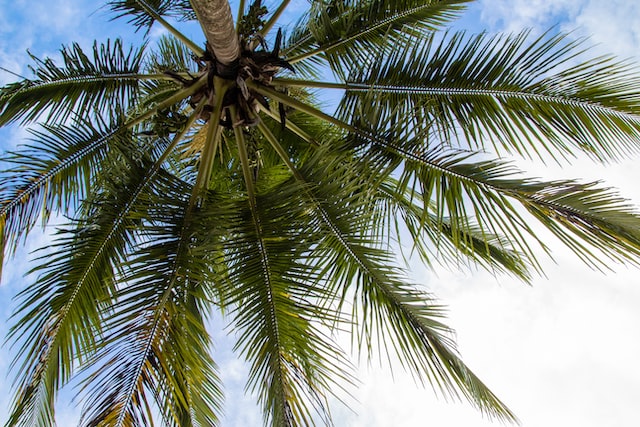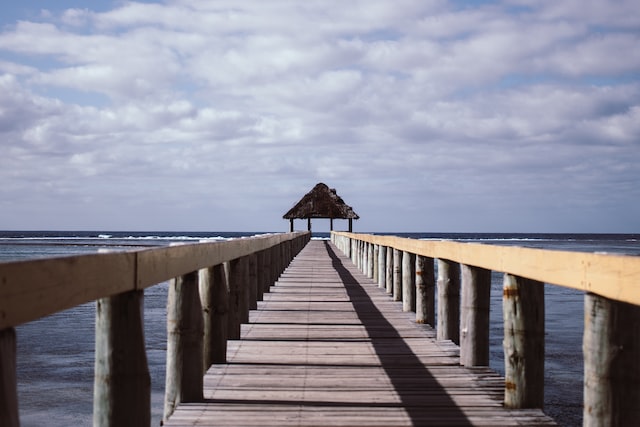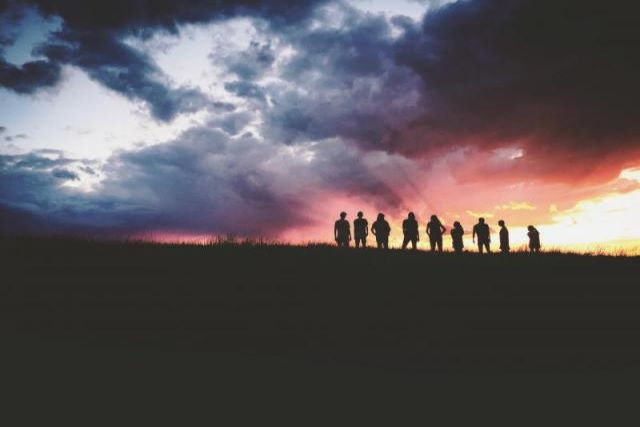New report about the experiences of the Pacific sexual violence workforce
Thu 19 Jan 2023
This is the first report to focus solely on the experiences of the Pacific sexual violence workforce in Aotearoa New Zealand.

Report about the Pacific sexual violence workforce
The report, Experiences and support needs of the Pacific sexual violence workforce in Aotearoa New Zealand (2022), summarises findings from the first research to look at experiences of Pacific sexual violence practitioners in New Zealand.
The research was completed by Pacific peoples for Pacific peoples in partnership with the Te Ohaaki a Hine National Network Ending Sexual Violence Together (TOAH-NNEST) Pacific Steering Group, the University of Auckland, the University of Waikato, and Tapasā mo Aiga. The Ministry of Social Development Commissioned the research.
The research involved a literature review, an online survey and individual and group talanoa of past and current members of the Pacific sexual violence workforce. The online survey was completed by 40 participants and 13 participants engaged in the individual and group talanoa.
The authors found that a Pacific sexual violence workforce is emerging and is currently made up of less than 50 Pacific sexual violence specialists of Pacific descent. The online survey found that the workforce is mostly female (95%) but also includes male and non-binary/third gender members as well; is well qualified with 80% holding at least an undergraduate degree; is older with 70% over 40; and majority Samoan ethnicity (51%) but overall a very diverse group from across the Pacific.
Most (87%) are employed by non-government agencies, with 24% as social workers and 24% as counsellors. Many do extra or pro bono work for Pacific clients who need but cannot meet service costs or are not eligible for funding support. The researchers called for further research to look at the context and extent of this and the impact on the Pacific workforce.
A majority (56%) have worked in the sexual violence sector for 2 years or less. The researchers also found:
"....that the Pacific SV [sexual violence] workforce who participated are scattered and feel isolated across the country and within their respective services. Most participants spoke about working in silos within their workplace. Some participants used the opportunity to participate in this talanoa to connect, sometimes for the first time, with other Pasifika people working in the same area."
People responding to the survey, said that Pacific clients make up less than 20% of their total clients and of those there is a wide range of Pacific ethnicities represented but most are likely to be Samoan, Tongan, Cook Island and/or Fijian (both Indigenous Fijian and Indo-Fijian). Of the survey participants, 94% have used Pacific values, practices and protocols in their work with Pacific sexual violence clients and "...these values, practices, and protocols are informed both by Pacific cultural (including indigenous) and faith-based concepts and belief systems." The use of these practices and models was diverse with many participants sharing how they adapted their work in response to the individual needs of clients. In some cases, individuals did not have resources, information or training to support the use of Pacific practices and models.
The researchers noted that "At present there is no specific Pacific sexual violence service model or workforce development framework in use in Aotearoa NZ" and that:
"Participants were familiar with Pacific, western and Māori models and/or frameworks of care in their practice. In particular, the Fonofale, Teu le va, Te Whare Tapa Wha and Narrative CBT models/frameworks, but also – though to a lesser degree, the Nga Vaka o Kainga Tapu frameworks. Overall, participants utilised one or more of these models/frameworks in their practice, integrating them in ways considered appropriate for the case at hand.
The vā was considered a key Pasifika principle of care that underlined Pasifika SV approaches to both crisis and prevention work."
The literature review found that Pacific approaches to sexual violence "...are culturally nuanced or specific, strengths based, healing-focused, and family and/or community-led."
With many leaving the sexual violence workforce after just 2 years, findings from the online survey found that personal (including family) reasons was the main reason, but financial, workload, burnout, and professional and cultural safety, were also main reasons for leaving.
Throughout the report, the researchers identified a number of areas for action. Some of they key needs include:
- a formal national Pacific sexual violence network to support and advocate for the Pacific sexual violence workforce
- a Pacific-led multiservice agency to coordinate Pacific expertise, referrals, and client support
- ongoing cultural and clinical supervision that is well versed in Pacific cultural and clinical sexual violence issues, frameworks and models
- better infrastructure and support for career progression, professional development, supervision, mentoring and leadership opportunities
- targeted and culturally nuanced workforce education and training initiatives around sexual violence prevention including issues related to consent
- workforce development that considers that Pacific practitioners draw on formal and informal support networks, with Pacific faith-based communities and families providing a significant amount of the informal support
- more specialised Pacific sexual violence practitioners in state agencies including ACC, evidence units (within Police and Justice) and the courts generally
- a holistic approach to government funding and assessments that is consistent with holistic Pacific models and frameworks of care.
Other issues surfaced through the research including a call for a new Pacific acumen, a new understanding, of Pacific sexual violence. The researchers specifically write:
"Two such topics in need of this deeper and careful probing might be, for example, one, that of what sex and consent mean in different Pacific spaces, and two, that of what to make of the inextricable relationship between Pacific indigenous values and Pacific faith-based values when interpreting the practice of vā in contemporary Pacific models of care? Probing these questions may lead to constructive reflections on the historical and structural contexts and impacts of the relationship between:
(a) Christianity and colonialism in the Pacific, and the neo-colonial effects of that relationship on present-day Pacific sexual attitudes, values, judgements, consent, and control practices in Aotearoa NZ,
(b) Liberal/neoliberal democratic state policies and practices and Pacific SV systems, models and frameworks of restorative justice, care, and healing, and
(c) Māori as tangata whenua and Pasifika as tauiwi working separately and together in the prevention and elimination of SV in Aotearoa NZ.
Each of these areas if probed deeply can offer resources for recasting and reimagining ‘the known’ of Pacific SV in Aotearoa NZ."
They also call for further research and highlight that the Pacific sexual violence workforce can provide leadership on how best to address this research including looking at the current knowledge gap on what consent means in Pacific sexual violence spaces, noting:
"Issues of consent in sex speaks directly to Pacific taboos and moral judgements around sex, sex education, sexual orientation, and sexuality, informed by contemporary Pacific cultural and faith-based understandings of tapu and vā. Literature review, questionnaire and talanoa findings suggest that probing consent in Pacific spaces raises personally uncomfortable and thus frequently avoided discussions for the Pacific SV workforce. This means a lot of care must be employed when engaging Pacific peoples in the SV workforce in conversations about the ambiguities, ambivalences, slippages, and contradictions of consent and sex within universalised definitions. Being aware of and having opportunity to debate these ambiguities can be confronting but can also create opportunities to address judgemental practices and community fears of confidentiality breaches, offering the potential to improve one’s inclusive practice and professional standards."
The researchers also cautioned against homogenising Pacific cultural differences when privileging Pacific languages and concepts, noting that "Without this conscious or deliberate effort there is a significant risk that these pan-Pacific frameworks will further isolate and marginalise these smaller Pacific ethnic populations and hinder their access to the help they need."
The report concludes with 5 recommendations:
"1. The emerging national Pacific SV workforce network be supported to bring the Pacific SV workforce together from across the SV sector and Aotearoa NZ, to advocate on behalf of the workforce and to explore the viability of a Pacific SV multi-service agency.
2. The findings of this research report be used to inform SV sector planning and investment in Pacific SV workforce development, bearing in mind the significant work already carried out by the Pacific health and Pacific family violence sectors on overlapping Pacific workforce support needs.
3. A review be undertaken of the impacts and/or effects of relevant state funding, reporting, evidence-building systems and evaluation processes on the productivity and retention of Pacific SV practitioners and on their potential to re-traumatise Pacific SV survivors.
4. The SV sector invest in growing Pacific cultural and clinical supervision expertise, Pacific SV workforce career and/or professional development and/or leadership pathways and recognises the contribution that informal Pacific networks play in supporting Pacific practitioner self-care and workforce retention strategies.
5. Because of the high numbers of male Pacific sexual violence offenders, the paucity of information or knowledge on the support needs of Pacific LGBTQ+ peoples and Pacific youth affected by sexual violence, and on the positive value associated with peer support services, more work is needed by the SV sector to attract more Pacific males, youth and LGBTQ+ persons to the SV workforce."
For more information read the full report or see the Summary for Government stakeholders or Summary for participants. Also see the highlight from Pasefika Proud.
Related news
The Kāiga Tokelau Wellbeing National Strategic Plan was launched in Wellington in October 2022. The 5-year plan, supported by Pasefika Proud, is the first national wellbeing plan for Tokelau people in Aotearoa New Zealand. It is one of the national wellbeing plans for ethnic specific Pacific groups being developed as part of the Pasefika Proud work programme set out in the Pasefika Proud Pathways for Change Framework launched in 2019. Learn more about this work programme from Pasefika Proud on achieving wellbeing.
My Baby’s Village Community Fund is currently accepting applications for funding until 10 February 2023. The fund provides a pool of funding to Pacific communities and family groups across Aotearoa. The funding is available for Pacific communities and families to lead ideas and initiatives that will have a positive impact on one or more of the following four priority areas:
- Pacific infant care
- Strengthening family relationships
- Child and family health and wellbeing
- Building community/village support systems for children and their families.
My Baby’s Village is a growing collective of cross-sectoral organisations, community groups, non-government organisations, health providers, churches, and community champions working together to do more to bring about positive and long-lasting change for the health and wellbeing of Pacific families. A number of organisations are involved including Pasefika Proud, LeVa, the Cause Collective, Oranga Tamariki, NZ Police and many more.
Related media
Image: Vijesh Datt on Unsplash





